Really Heavy Periods and 7 Other Painful Endometriosis Signs
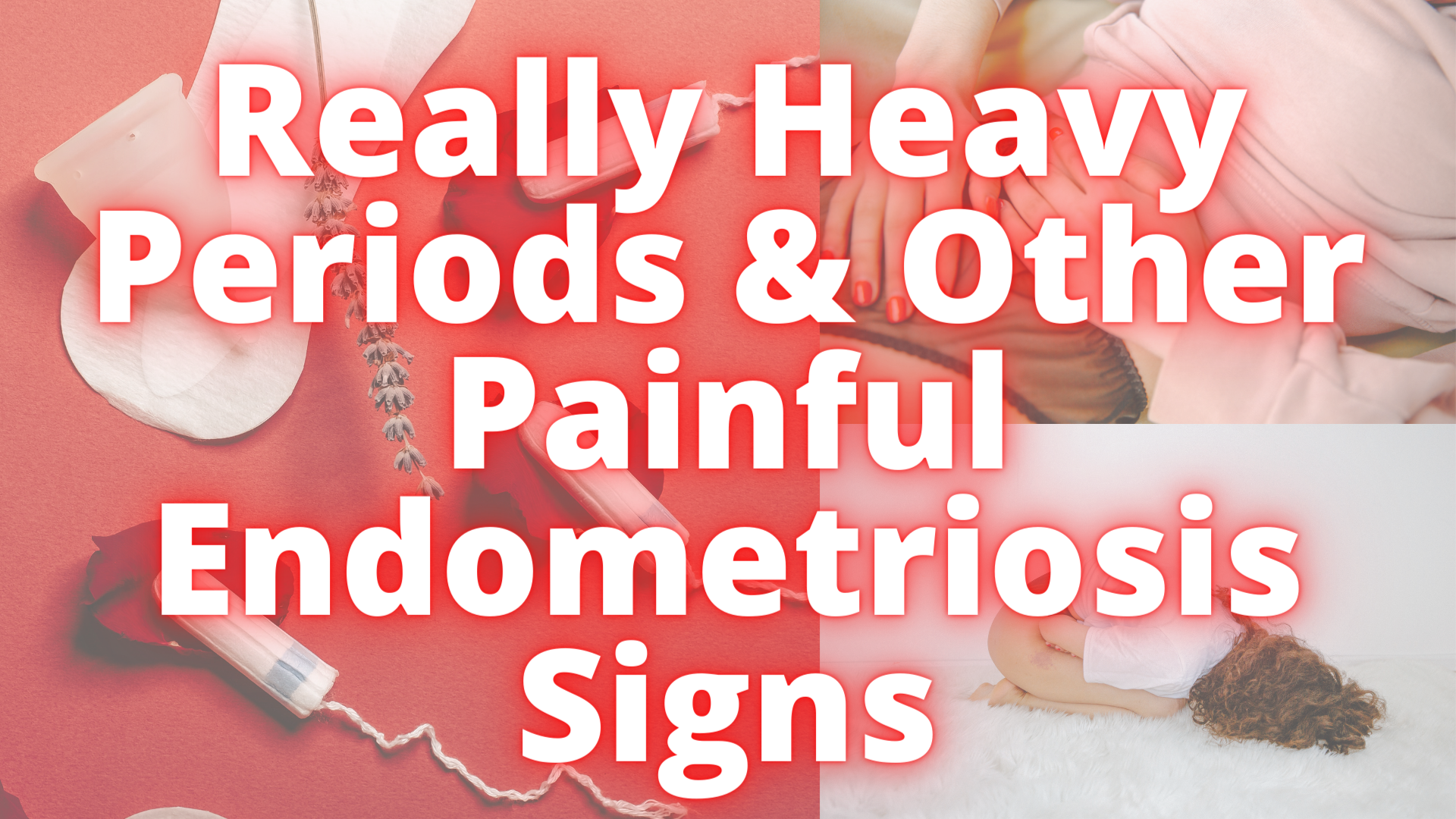
Happy Wednesday! Quick question, do you have really heavy periods? Or know someone who has really heavy periods? What are some things you were taught about periods in general?
Welcome to my blog! I’m Sadia, a women’s health nurse practitioner, women’s health content writer, and social commentator. I do many things, but mostly, I write and speak my mind. All views my own unless stated otherwise. Grab something to drink and scroll away with me. It’ll be good for both of us, promise.
If you told anyone, like a parent or health care provider, that you had really heavy periods, how did they react? Unfortunately, menstrual pain is seen as a “normal” thing that everyone with a uterus experiences. Many people, from parents to health care providers to the media, make it seem like really heavy periods with lots of bleeding and cramping are perfectly common and just as a part of life.
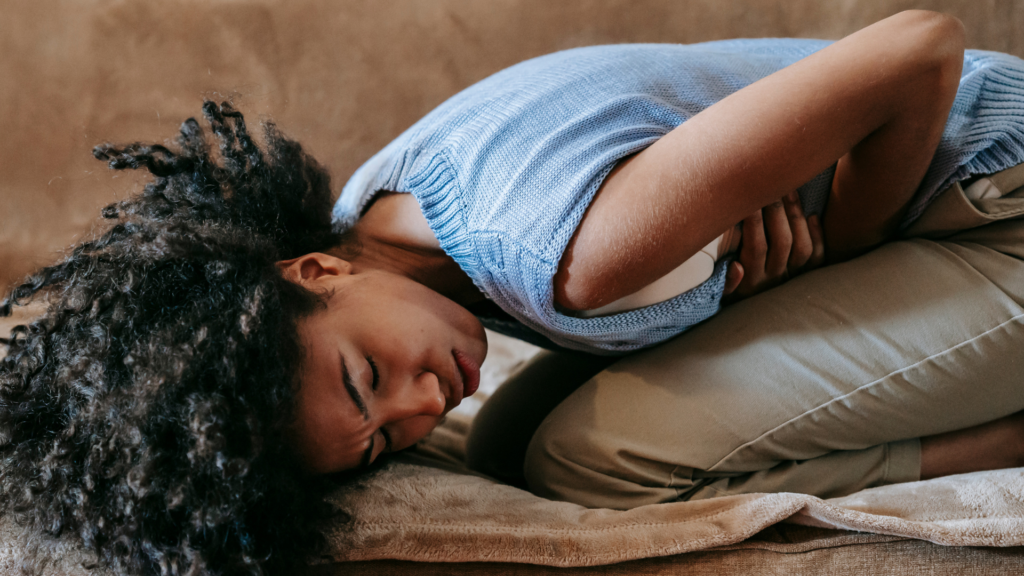
What if I told you that really heavy periods aren’t normal? That you can have a period without spending a week in bed, passing out, or going through several pads?
For many years, because of social stigma and shame around menstruation and anything involving the female reproductive system (and women in general, but that’s a later conversation), people who had really have periods were shunned, silenced, and shamed.
That changes NOW! Today, I’m going to talk with you about endometriosis, a health condition that can cause really heavy periods.
Let’s get into it.
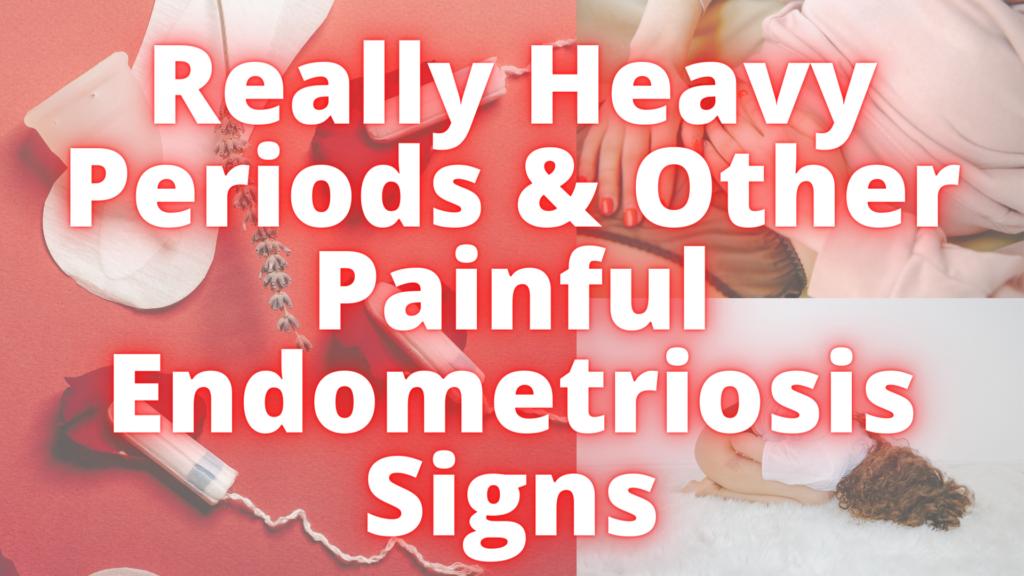
An Overview of Endometriosis
I originally wrote about endometriosis here for Lala’s Bedtimes Tales. Endometriosis is health condition that truly stuck a chord with me even before nursing school. I never had really heavy periods, but many people in my life do. Often times, they were denied medication, told they were being dramatic, and shamed for taking time off of work or school.
When you’re thinking about periods and cramps, I’m sure the endometrium, which is the scientific name for the lining of your uterus, might not be what you first think of as the cause of any menstrual symptoms. Endometrium sounds very clinical and formal, but it’s really important. The endometrium is the innermost lining of the uterus and plays an integral role in maintaining the uterus’s health.
Sometimes, there can be endometrial tissue found outside the uterus. And the human body is very sensitive, so if something is not where it’s supposed to be, the body will try to get rid of it. The body naturally doesn’t like endometrial tissue anywhere outside the uterus.
Endometriosis is when endometrial tissue is located outside the uterus, like ovaries or bladder. Endometriosis is a life-long chronic health condition that can cause pelvic pain, pain during sex, really heavy periods, and so many more issues that can make someone’s daily life unbearable.
When this extra endometrial tissue is outside the uterus, the extra tissue still behaves as it would inside it. During a menstrual cycle, endometrial tissue naturally thickens, breaks down, and bleeds out of the uterus and vagina. However, the additional endometrial tissue outside the uterus cannot leave the body during your menstrual cycle. As a result, the remaining endometrial tissue stays stuck inside the body, causing adhesions, lesions, or cysts to develop.
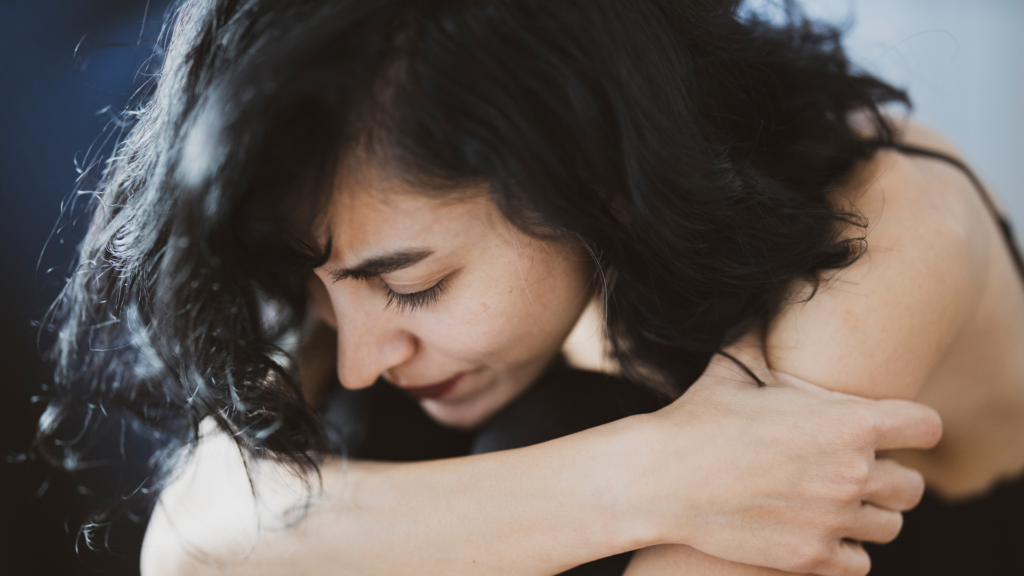
Which also can cause really heavy periods.
For instance, an ovarian cyst or endometrioma is when endometrial tissue binds to an ovary. Another example is when endometrial tissue attaches to the fallopian tubes or bladder, which can cause localized irritation, inflammation, and pain.
Endometriosis can be extremely painful, particularly during menstruation, because of the adhesions, cysts, and pelvic pressure from unreleased endometrial tissue. As a result, endometriosis can cause chronic pelvic inflammation and can significantly influence someone’s quality of life.
If endometriosis is left untreated, it can lead to infertility, chronic pelvic pain, decreased quality of life, and consistent really heavy periods.
It is estimated that 1 in 10 people with a uterus has endometriosis worldwide. Most data and statistics around endometriosis are estimations because many people with uteri often do not discuss their pain or menstrual history. The social narrative around menstruation being a “taboo” subject causes many cases of endometriosis to be underdiagnosed and underreported.
Even though endometriosis affects 1 in 10 people with a uteri, there is no known cause or cure for this condition.
Because of medical sexism, lack of funding, lack of research, and lack of awareness surrounding endometriosis, there is still so much more to learn about this common health condition.
Really Heavy Periods and More: Dealing with Endo(metriosis)
Common signs and symptoms of endometriosis, or endo for short, include:
- Really heavy bleeding, also known as abnormal uterine bleeding or heavy menstrual bleeding
- If you soak through more than one pad or tampon every two hours, you most likely have heavy bleeding with your period.
- Heavy Menstrual Cramping
- Pain During Vaginal or Anal Sex
- Pain During Urination
- Pain During Defecation
- Nausea
- Fatigue
- Pelvic Pain
- Constipation
- Diarrhea
- Lower back pain
While really heavy periods can be a sign of endometriosis, other things can cause really heavy periods. In order to know if it’s endometriosis for sure, the definite standard for an endometriosis diagnosis is examining a lesion obtained during surgery. The most common surgery to determine if someone has endometriosis is laparoscopy. Laparoscopy is a procedure used to examine the pelvic region.
Unfortunately, no single non-invasive test, like a blood test or x-ray, can provide an endometriosis diagnosis. Because of all the ramifications of surgery, like cost, scheduling, and being absent from work or school, some people with suspected endometriosis might not ever be able to obtain a laparoscopy procedure.

If you are an individual with some of endo’s signs and symptoms above, there are possible alternatives to help diagnose whether or not endometriosis is the cause of your really heavy periods. A medical provider can use the combination of symptoms, health history, and ultrasound findings of a patient to make a suspected diagnosis of endometriosis possibly.
As for managing endo, some health care providers might recommend hormonal contraception, such as the contraceptive pill or hormonal intrauterine device to help with really heavy periods. Some health care providers might recommend Orilissa, a prescription that’s used to manage moderate to severe pain from endometriosis.
If someone has had a laparoscopy, the surgeon might recommend removing adhesions and cysts to alleviate pain and improve quality of life.
The truth is there is no one pill or one surgery to treat endometriosis. Endometriosis is a chronic health condition with no cure. The only option is to manage it. Knowing that there is no cure and that it can present differently in people, managing endometriosis is best done under the guidance of a trusted and accredited health care provider.
I Think I Have Endo…What Now?
I know I just told you many sad things about this condition that affects 10% of people with a uterus. There’s no cure, no way to get a definite diagnosis outside of surgery, and there are so many socialization stigmas around menstruation.
It’s confusing. It’s complicated. And as a healthcare professional, I understand your frustration when dealing with this f***ed up health issue. Sometimes, living with a uterus can be extremely overwhelming and uncomfortable. I have a uterus, and I empathize with you and your frustration. While I do not have really heavy periods, I have seen many people struggle to find access to health care, be taken seriously by health care providers, fight for time off of work, and have the life they desire.
The truth is that living with really heavy periods or endometriosis or both are not easy. It can feel lonesome, depressing, and be challenging. If you think you have endo or are just concerned about really heavy periods, I would recommend finding a health care provider to speak with.
If you already have a OB/GYN or provider you see already, great, you can ask them about your periods. But, if you feel like they are not taking your concerns seriously or minimizing your pain, seek another opinion. You do not need to suffer from really heavy periods just because “pain is normal.”
Pain is not normal.
Society has made it normal for people to experience really heavy periods and not get the treatment they deserve to live the life they they deserve.
Here are some resources to read up on endometriosis, to find a health care provider, and to learn more:
EndoBlack, a non-profit founded by Black women, is an excellent community for Black women and non-Black women of color who have endometriosis
Endo on Reddit, an online forum where hundreds of public posts discuss endometriosis care specialists and management options daily concerns
One of the first mainstream celebrities to discuss endometriosis, Padma Lakshmi, founded the Endometriosis Foundation of America, a non-profit dedicated to advocacy and education for people living with endometriosis
If you are concerned about pelvic pain, menstrual health, really heavy periods, or anything else regarding your health, I recommend reaching out to your health care provider for more information.
Make sure to share this post with a friend 🙂
What sorts of topics would you like to see me write more of in the future? I plan on doing blog posts every Wednesday for the near future, and I would love your input!
Thank you for reading! Have a great day!
References
https://www.reddit.com/r/Endo/
https://www.cnbc.com/2016/05/19/this-neglected-disease-is-a-hidden-drain-on-womens-success.html
https://www.mayoclinic.org/diseases-conditions/endometriosis/symptoms-causes/syc-20354656
https://www.verywellhealth.com/what-is-the-endometrium-2721857
https://www.womenshealth.gov/a-z-topics/endometriosis
https://www.asrm.org/topics/topics-index/endometriosis/
https://www.uptodate.com/contents/endometriosis-pathogenesis-clinical-features-and-diagnosis
P.S. Are you still reading? If you are able to afford to do so, consider compensating me for my time and labor with a one-time amount via PayPal (https://paypal.me/nursesadia) or Ko-fi (https://ko-fi.com/nursesadia). Thank you!
DISCLAIMER: Nurse Sadia is a licensed and board-certified women’s health nurse practitioner and registered nurse. All information on this page and on www.digitalhealthcommunicator.com is for educational and informative purposes only. It is not meant to be used for self-diagnosing or self-treatment of any health-related conditions. While the information presented has used evidence-based research and guidelines for accuracy, Nurse Sadia cannot guarantee any inaccuracies as healthcare is rapidly evolving.
This information should not be used to substitute professional medical advice. Nurse Sadia is not responsible or liable for any damages, loss, injury, or any negative outcomes suffered as a result of personal reliance on the information contained on this website. Nurse Sadia also makes no guaranteed positive outcomes. Information is also subject to change as needed without notice. Please consult with your healthcare provider before making any healthcare decisions and ask about guidance for specific health conditions. Please do not disregard the advice of your healthcare provider or delay seeking care for health care conditions.

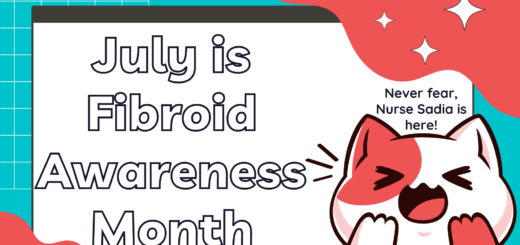
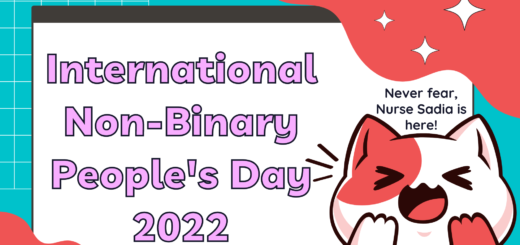
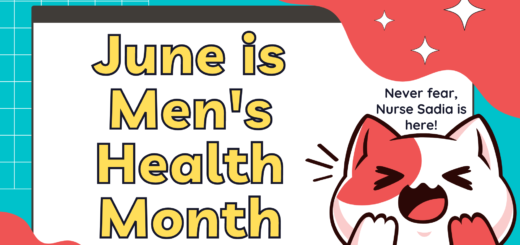
1 Response
[…] 0 […]